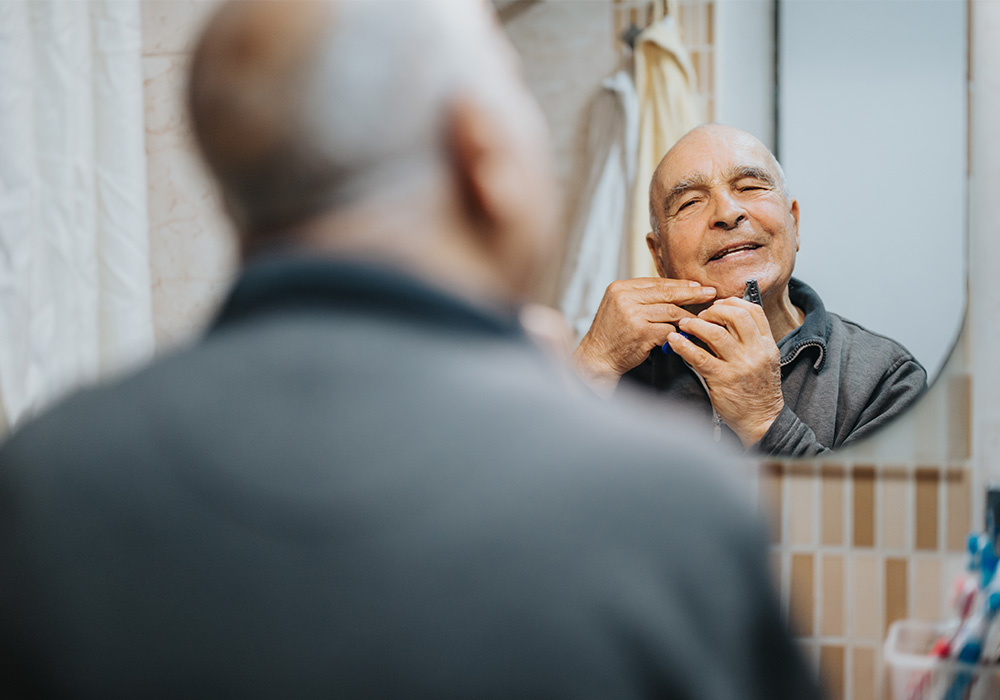Life feels more balanced when each day has a steady rhythm. For older adults, that sense of structure offers more than just predictability; it provides comfort, connection, and a renewed sense of control. After the long, often unpredictable summer months, returning to daily routines can help seniors feel grounded and supported as the seasons change. With gentle guidance and simple habits, families and Caregivers can create supportive structures that strengthen both body and mind.
Why Routines Matter
A daily routine for seniors is a powerful tool. Routines provide consistency, which helps reduce stress and anxiety while promoting confidence. Knowing what to expect each day creates stability, especially for those navigating memory concerns or mobility challenges. Routines also serve as natural reminders for important habits like hydration, medication, and exercise—preventing oversights that can impact health and safety.
Physical Health Benefits of Daily Routines for Seniors
Consistency in everyday habits is one of the most effective ways to support healthy aging. When physical needs are built into the daily schedule, seniors are more likely to stay active, nourished, and well-rested.
Consistent Movement
A routine can help seniors stick to a schedule of regular physical activity, like a morning walk or a post-lunch stretch. This consistency in movement is crucial for maintaining strength, flexibility, and balance, which are key for fall prevention. It also helps ensure meals and medication are taken at regular times, which is essential for managing chronic conditions like diabetes or high blood pressure.
Nutrition on Schedule
Planning meals at regular times supports digestion, energy levels, and overall wellness. Simple, balanced meals that include lean proteins, fruits, vegetables, and whole grains can provide lasting vitality.
Better Sleep Patterns
Our bodies thrive on consistency. Going to bed and waking up at the same time each day, even on weekends, can regulate the body’s internal clock. This can lead to improved sleep quality, which is vital for both physical restoration and cognitive function.
Fostered Independence
A well-established daily routine for seniors empowers them by giving them a sense of control over their day. Knowing what comes next allows them to participate more actively in their own care, building confidence and fostering a renewed sense of purpose.
Emotional and Cognitive Wellness Through Structure
The predictability of a routine reduces the cognitive load of having to make numerous small decisions throughout the day. This can decrease stress, alleviate anxiety, and improve overall mood. For individuals with cognitive decline, a consistent schedule can be particularly grounding, helping to reduce confusion and agitation. It also helps boost:
Cognitive Engagement: Setting aside time for puzzles, reading, or hobbies like gardening or painting stimulates the brain and helps maintain sharpness.
Emotional Balance: Built-in moments of joy—such as listening to music, spending time outdoors, or practicing mindfulness—can reduce stress and uplift mood.
Social Wellness: Scheduling regular phone calls, visits, or community outings fosters connection and combats loneliness, which is vital for long-term health.
By weaving in both mental stimulation and meaningful connection, routines promote overall well-being.
Practical Tips for Families and Caregivers
Creating a sustainable routine doesn’t mean filling every moment with tasks. Instead, focus on simple anchors throughout the day that bring comfort and consistency.
- Start mornings with gentle stretching, a nourishing breakfast, or a favorite ritual like reading the newspaper.
- Ask for your loved one’s input and preferences. What time do they prefer to eat? What activities do they enjoy most?
- Leave room for flexibility. The goal is a supportive structure, not an inflexible schedule.
- Dedicate afternoons to light activity or social engagement, even something as simple as a walk with a neighbor.
- End the day with calming practices like soft music, herbal tea, or light reading to prepare the body and mind for sleep.
Caregivers can help tailor routines to each individual’s preferences and needs, ensuring they feel empowered rather than restricted.
Building Stability, One Habit at a Time
Establishing a daily routine for seniors is one of the simplest yet most powerful ways to enhance quality of life. By creating predictable patterns that support physical health, emotional balance, and social connection, families and Caregivers help seniors thrive at home with greater comfort and independence. A strong routine isn’t just about structure. It’s about creating a sense of calm, fostering connection, and ensuring every day is filled with care.

